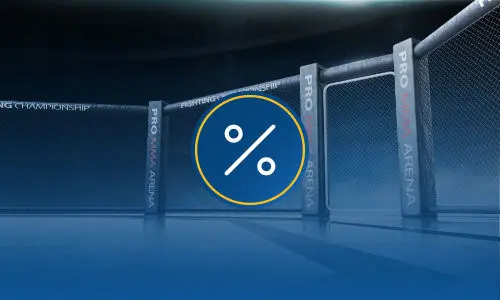
공유하다:
As combat sports like MMA, boxing, and kickboxing continue to grow in popularity, fans are finding new ways to enhance the excitement by incorporating betting into their viewing experience. Thanks to the rise of online betting platforms, enthusiasts can now place wagers on their favorite fighters and matches right from the comfort of their homes. However, to truly maximize your combat sports betting experience, it’s essential to understand the intricacies of the sport, betting strategies, and how to make informed decisions.
This article provides expert tips to help you navigate the world of combat sports betting and increase your chances of success.
Understanding Combat Sports Betting Dynamics
Combat sports betting presents unique challenges due to its complexity and unpredictability. Unlike team sports, where outcomes are influenced by the collective performance of several players, combat sports are determined by the skills, strategies, and mental toughness of individual fighters. As a result, betting on combat sports requires a different approach.
Before placing a bet, it’s crucial to evaluate multiple factors that could impact the outcome of a fight. From fighters’ styles and physical conditions to their recent performances and the environment, these elements play a critical role in shaping the result. For example, online betting platforms like Betway allow you to make more specific bets, such as predicting which round the fight will end in, the method of victory (e.g., knockout or submission), and even the number of significant strikes a fighter will land.
While online sportsbooks provide stats, odds comparisons, and expert analysis, the key to success in combat sports betting lies in having a deep understanding of the sport and the specific fighters involved in each match.
Analyzing Fighters: What to Look for Before Placing a Bet
Analyzing fighters before placing a bet is one of the most critical aspects of combat sports betting. By
understanding a fighter’s background, strengths, and weaknesses, you can make more informed decisions. Here are a few key factors to consider:- Fighting Style: Every fighter has a distinct fighting style, whether it’s striking, grappling, or a well-rounded combination of both. For instance, a wrestler may have an advantage over a striker if the fight goes to the ground, while a powerful striker might dominate a stand-up battle. Understanding how different styles match up against each other is crucial when evaluating potential outcomes.
- Physical Condition: A fighter’s physical condition leading up to a bout is another essential factor to assess. Consider how they handle weight cuts, whether they’ve had recent injuries, and their overall fitness level. Fighters who struggle to make weight or have a history of injuries may be at a disadvantage in their upcoming fight.
- Recent Performance: Reviewing a fighter’s recent performance can give you insight into their current form. Look for patterns in their last few fights, such as upward or downward trends, and how they’ve fared against opponents with similar styles to their next competitor. This information can help you gauge their likelihood of success in the upcoming match.
Additionally, don’t overlook a fighter’s mental toughness. Combat sports require not only physical strength but also psychological resilience. Fighters who handle pressure well and remain calm under intense conditions tend to perform better than those who become nervous or hesitant, especially after previous losses.
Understanding Fight Odds: How to Use Them to Your Advantage
Odds are the foundation of sports betting, and understanding how to read and interpret them is crucial for success. In combat sports, odds represent the likelihood of a specific outcome and dictate how much you stand to gain if your bet is successful.
- Moneyline Odds: The moneyline is the most common form of betting in combat sports. It’s used to predict which fighter will win the match. For example, if Fighter A has odds of -150, you’d need to bet $150 to win $100. On the other hand, if Fighter B is listed at +130, betting $100 would yield a $130 profit if they win.
- Prop Bets: Prop bets are wagers on specific outcomes within the fight, such as predicting how the fight will be won (knockout, submission, or decision) or in which round it will end. Prop bets often come with higher payouts but are considered riskier.
- Over/Under Bets: In over/under bets, you predict whether the fight will last more or fewer rounds than a set number. For example, if the over/under is set at 2.5 rounds, you would bet on whether the fight will last longer than halfway through the third round.
By familiarizing yourself with odds and understanding how they’re calculated, you can identify value bets—those that offer higher returns relative to the risk. This often involves spotting discrepancies between your own analysis and the odds provided by bookmakers, presenting opportunities for profit.
Responsible Betting: Managing Your Bankroll and Setting Limits
Responsible gambling is essential to maintaining an enjoyable and sustainable betting experience. Proper bankroll management and setting limits on your bets are crucial steps in ensuring you don’t fall into the trap of reckless betting.
- Bankroll Management: Before you start betting, set a specific bankroll—an amount of money you can afford to lose without impacting your financial well-being. A common strategy is to only bet a small percentage of your bankroll (typically 1% to 5%) on any single fight. This approach minimizes losses and keeps you in the game, even during a losing streak.
- Setting Limits: It’s important to establish limits on the time and money you spend betting. Set a loss limit, at which point you stop betting, and a win limit, where you walk away with your profits. Avoid emotional betting, where decisions are based on personal feelings rather than objective analysis, such as betting on your favorite fighter or trying to recover from a previous loss.
By betting responsibly, you can enjoy combat sports without risking your financial stability or letting emotions cloud your judgment.














